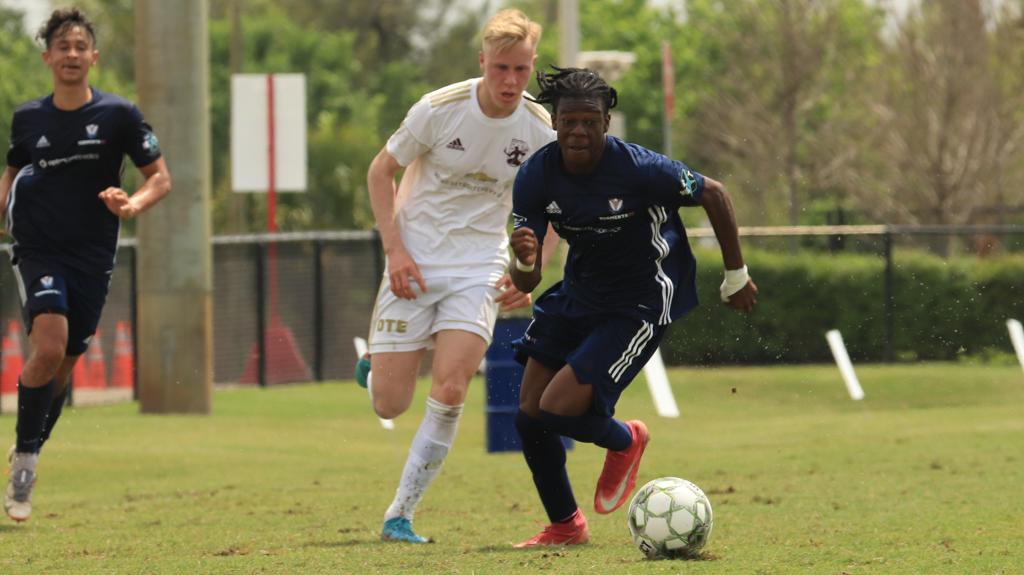College soccer players often face several breaks throughout the year—summer off-season, winter holiday, and short academic breaks—when team training slows or stops. Without the structure of daily practices and matches, it’s easy to lose fitness, sharpness, and focus. But with a smart off-season plan, you can return stronger, faster, and more prepared.
In this article, you’ll find practical strategies to stay in peak condition during breaks, covering conditioning, technical skills, mindset, nutrition, and coach visibility.
1. Set Clear Goals for Each Break
Start by defining what you want to achieve during each break:
- Summer: Build speed and strength.
- Winter holiday: Maintain fitness and recover from any niggles.
- Spring break: Get extra touches, work on technical skills, refine tactics.
Write these goals down and share them with your coach for accountability.
2. Plan a Structured Training Routine
Even without team sessions, you need structure:
Components:
- Conditioning: 2–3 days/week—interval running, sprints, agility drills.
- Strength training: 2 days/week—focus on lower body, core, and injury prevention.
- Technical work: 3 days/week—passing, shooting, 1v1 drills.
- Active recovery: Yoga, mobility, or light bike runs 1–2 days/week.
A balanced routine keeps fitness and technical sharpness alive.
3. Use Small-Sided Games or Pick-Up Matches
You don’t need club-level events to stay sharp:
- Join informal games with teammates or local players.
- Join adult or veteran leagues for fun and intensity.
- Arrange 3v3 or 5v5 with friends in parks or backyards.
These sessions sharpen your touch, decision-making, and physical readiness.
4. Maintain a Healthy Nutrition Plan
Candy, late nights, and desserts can sneak in during breaks—don’t let them derail your progress:
- Keep a balanced diet with lean protein, whole carbs, and healthy fats.
- Stay hydrated—even with colder weather.
- Use breaks for recovery, but avoid dropping conditioning too much.
Proper fueling helps you train hard and recover faster.
5. Track Your Progress
Keep yourself honest and accountable:
- Use a training journal or fitness tracking apps.
- Record times, weights, reps, and drill improvements.
- Reflect on how you feel—energy, recovery, mindset.
This data helps you return stronger and notice patterns.
6. Keep a Mental Edge
Breaks can derail momentum. Stay mentally sharp with:
- Daily visualization of training routines or season goals.
- Listening to motivational podcasts or team season reviews.
- Setting weekly check-ins with a teammate, mentor, or coach.
Mental habits built now pay off when the season resumes.
7. Stay in Touch With Coaches and Teammates
Breaks don’t mean cutting off contact:
- Send weekly updates with short videos of your training.
- Ask coaches for at-home feedback.
- Join team group chats, social media, or video calls to stay connected.
Staying visible boosts coach confidence when selections happen.
8. Prevent Injury During Unstructured Breaks
Without team medical staff nearby, avoid injury by:
- Gradually ramping up intensity—don’t go from zero to 100% in week one.
- Always warm up before drills and hike temperatures down afterward.
- Address tightness or soreness early with mobility tools, massage, or professional advice.
A small issue now can become a season-ending problem later.
9. Use Breaks to Improve Academics and Life Skills
Breaks aren’t just for soccer—use them well:
- Catch up on classes or study ahead.
- Learn basic cooking to fuel your athlete body.
- Enjoy time with family and decompress mentally—essential for long-term success.
Final Thoughts
Breaks from college soccer can be productive and empowering. By structuring workouts, maintaining healthy habits, staying mentally sharp, and keeping coach relationships strong, you ensure you return to the pitch stronger than ever.
Make every break count—with intention, purpose, and a plan, you’ll rise above the rest when season returns.
.svg)










